Ready to learn more?
Get all the details straight to your inbox!
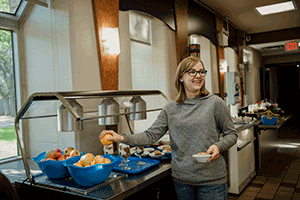
Living in The Student Village at Luther College, our student residence, comes with a choice of healthy, nutritious meal plans. That means no grocery shopping, no meals to cook, and no dirty dishes to worry about. You can focus on your studies and wellness!
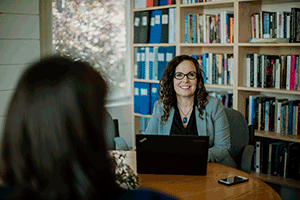
Free enrolment counselling support and invaluable one-on-one academic advising are available for all programs at Luther College.
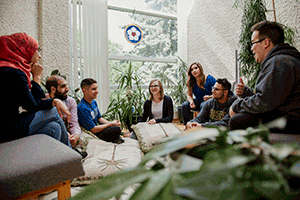
Luther College appeals to students who want to study in a safe, nurturing, and inclusive environment. We welcome students of all faiths, ethnicities, backgrounds, religions, genders, and sexual orientations.

Smaller class sizes at Luther College means more individualized attention and better connections with your professors, classmates, and academic advisors.
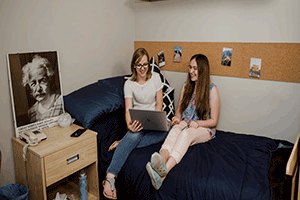
Our student residence, The Student Village at Luther College, welcomes residents from ALL post-secondary institutions in Regina. Rooms come with a meal plan, free laundry, free wi-fi, and a great sense of community.
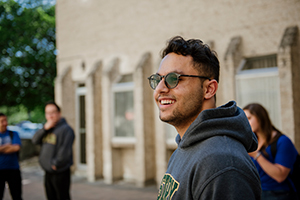
Every degree program at Luther College offers a study abroad option and an optional experiential learning component where you gain real world experience and get paid while going to school!
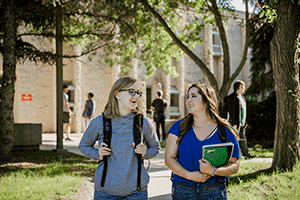
Luther College is a great choice for high school to university transition. Enjoy all the benefits of a larger campus, without feeling lost in the crowd. Our community is full of caring mentors and peers to ensure a positive student experience.
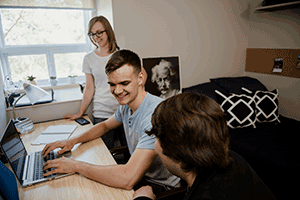
Wondering where to live? Our student residence, The Student Village at Luther College, is considered a great choice for first-year student accommodation. Individual private rooms mean you can stick to your own schedule and you never have to deal with roommate hassles.
Get all the details straight to your inbox!
Chris Askew (U’07) was always a curious kid who could figure out any kind of puzzle or complex equation. When the very first CSI: Crime Scene Investigation aired on television in 2000, an impressionable, fifteen-year-old Chris was hooked.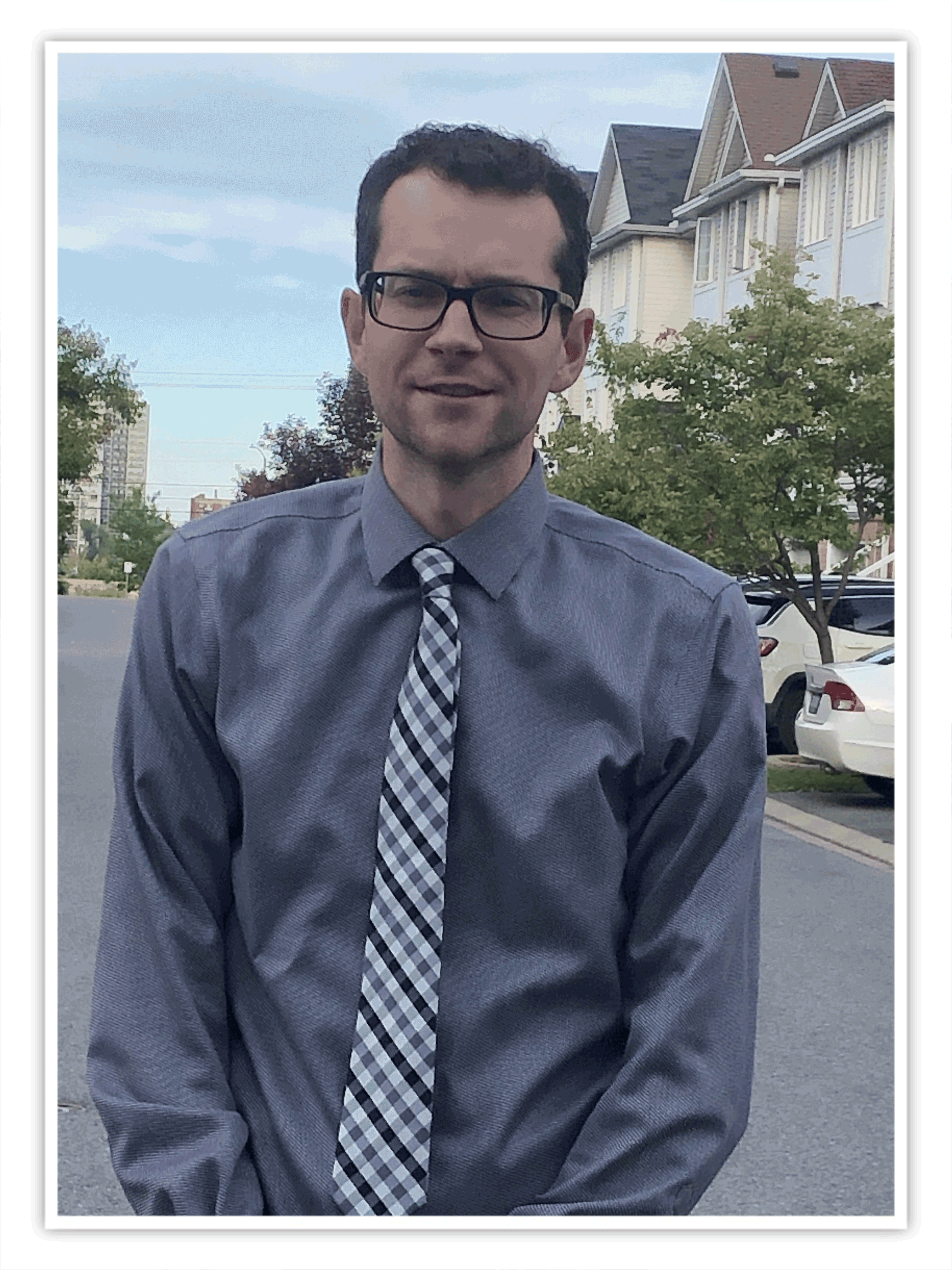
“It was fascinating to watch investigators scour a crime scene and collect blood spatter and gunshot residue to help solve a murder. It helped propel me into a forensics career. I soon learned that real-life forensics can take months or even years to solve. It’s not something that wraps up neatly in forty-five minutes of television,” he laughs.
Chris credits his parents for encouraging his love of science, and the support of real-life mentors along the way. “My baseball coach, John Hudson, and my genetics professor at the U of R, Dr. Greg Litzenberger, both worked at the former RCMP forensic lab in Regina,” Chris begins. “They helped shape my eventual career.”
Chris says he was also fortunate to be at Luther College at the University of Regina, with “top notch” teachers in a small, nurturing environment. “I don’t think I would have done as well without that kind of support,” he asserts. After graduating with a Bachelor of Science honours in 2007, Chris obtained his Master of Science degree from McGill University. Ironically, Chris was offered a job at the RCMP forensic lab while still at McGill, but he turned down the opportunity in order to complete his degree.
Chris’s first job was with DNA Genotek, a biotech company in Ontario that provides DNA collection kits to companies, including those that provide the public a chance to discover their ancestry and personal genetic information. While at DNA Genotek, Chris had the opportunity to take a two-week forensics course, and that helped him land a job with the Ontario Centre of forensic sciences in Sault St. Marie, fulfilling his lifelong dream of becoming a key player in real-life CSI dramas. “I used my knowledge of genetics and DNA analysis to help solve complex murder cases throughout Ontario,” says Chris. While at work, he met his wife, Laura, an hr professional, and together they moved to Ottawa, Ontario to take on Chris’s biggest career accomplishment to date.
“I helped set up the Missing Persons Unit within the RCMP national DNA data Bank from the ground up,” Chris says proudly. “Unlike crime scenes, where you use science to assist in determining whether a suspect is guilty or not, the Missing Persons Unit has a humanitarian role. We analyze DNA from family members whose loved ones are missing and DNA from the personal effects of the missing person, such as a toothbrush. We then see if we can make a connection with the DNA from unidentified human remains found across Canada.”
Chris says his work has changed the way police departments operate across Canada. “Jurisdictional issues often result in a lack of communication between the provinces. But now, the national DNA data Bank provides a central repository for DNA information. Unlike forensics, where you’re looking for an exact match, linkages between family members are based on the amount of DNA sharing,” he explains. “You receive half your DNA from your mother and the other half from your father. Based on the amount of DNA sharing, we can provide evidence that a bone fragment belongs to a family member and help bring closure.”
Chris’s fascination with genetics has resulted in a prestigious and fulfilling career, one that also includes time as a sessional university lecturer, helping to inspire the next generation
of scientists.